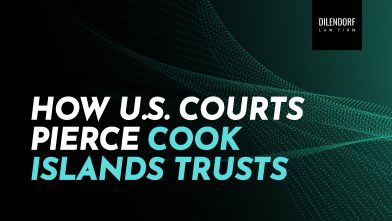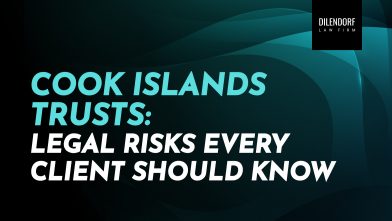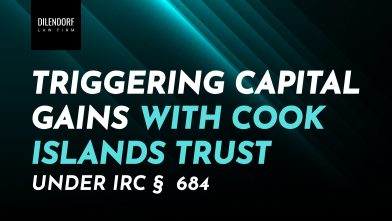Best Asset Protection Strategies for Real Estate Professionals
Protecting your assets is of utmost importance, particularly for professionals in fields such as real estate development, architecture, and engineering. While the United States is known for its favorable estate and asset protection regulations for non-U.S. residents, it may not provide the same level of protection for U.S. citizens. In this article, we will delve into various asset protection strategies, including offshore alternatives.
Within the United States, 19 states have established Domestic Asset Protection Trusts (DAPT), offering asset protection to their residents. However, for individuals residing in states without DAPT provisions who opt to establish a trust in a DAPT state, there are vulnerabilities to consider. Creditors may find it comparatively straightforward to challenge the legal structure of these trusts.
In our professional experience, we frequently observe real estate professionals opting for DAPT asset and estate planning trusts. Nonetheless, it’s crucial to recognize the fundamental principle of “full faith and credit.” Full faith and credit is the requirement, derived from Article IV, Section I of the Constitution, that state courts respect the laws and judgments of courts from other states.
This clause attempts to prevent conflict among states and ensure the dependability of judgments across the country. It’s essential to note that 31 states, including New York, Florida, Texas, and California, lack DAPT statutes.
In situations where, for example, a real estate developer becomes entangled in a construction dispute or tort case in Florida or New York while holding a DAPT trust in a state such as Wyoming or Nevada, creditors may have strong grounds to assert claims against the developer’s assets located within a DAPT trust.
Enforcing an out-of-state judgment typically involves a “conflict of law” analysis in the enforcing state, often a DAPT state. Notably, Section 10 of the new Uniform Voidable Transactions Act (already adopted by 20 states) stipulates that it is the debtor’s home state law that applies, not the DAPT jurisdiction.
In the case of a DAPT state, if the only connection to that state is the existence of a trust where you are both the beneficiary and grantor, the judge may look beyond the trust’s physical location. In deciding the enforceability of the judgment, the judge is likely to apply the law of the state where the tort occurred.
Furthermore, under Section 548(e) of the Bankruptcy Code, there exists a 10-year clawback provision for assets transferred to a self-settled trust. The U.S. Constitution is again notable here. Article VI, Paragraph 2 of the Constitution, commonly referred to as the “Supremacy Clause” establishes that the federal Constitution, and federal law generally, take precedence over state laws, and even state constitutions. Thus, a DAPT will do little to help preserve any portion of your estate if you would ever have to declare bankruptcy. Pursuant to the Supremacy Clause Federal Bankruptcy laws trump any entity established under state law. This is true even if you live in a DAPT state.
As a result, DAPT trusts may not always serve as an effective asset protection and estate planning tool for real estate professionals residing in non-DAPT states, as creditors may collapse the trust structure.
Another significant development to consider is the Corporate Transparency Act (CTA), scheduled to become effective on January 1, 2024. This act will bring substantial changes to corporate reporting requirements in the United States. It will require millions of companies and trusts to disclose information about their beneficial owners, individuals who hold ultimate ownership or control over the entity. This increased transparency may have implications for privacy, particularly for entities like LLCs, trusts, and corporations.
In summary, while DAPT asset protection structures offer valuable benefits to residents of DAPT states and non-U.S. residents, they may not provide the same level of protection for out-of-state residents. For those seeking comprehensive asset protection solutions, offshore options, such as trusts in the Cook Islands, can be highly effective.
Real estate professionals may find Cook Islands trusts to be ideal. What sets Cook Islands Trusts apart is the flexibility they offer; the individual who establishes the trust (known as the settlor) can also designate themselves as the trust’s beneficiary. This unique feature makes Cook Islands trusts particularly adept at safeguarding various liquid assets, including cash, securities, bonds, and cryptocurrencies.
To access assets held in a Cook Islands trust, creditors face significant legal challenges. Creditors will need to initiate their case anew in the Cook Islands because this jurisdiction doesn’t recognize foreign judgments. Moreover, they must meet a very high burden of proof, equivalent to the “beyond a reasonable doubt” standard used in criminal cases in the United States.
In addition to these challenges, the Cook Islands imposes a very short statute of limitations: a lawsuit must be filed within one year of the event giving rise to the claim or cause of action arising and only after filing suit on this accelerated schedule, a claim for fraudulent or voidable transfer must be brought in the Cook Islands within two years of said event.
Compounding these hurdles, creditors must bear the upfront legal expenses associated with pursuing a claim in the Cook Islands. Moreover, if they do not succeed in their claim, they may become liable for covering the defendant’s legal fees.
For more information or to schedule a consultation, please visit Dilendorf Law Firm’s Website or get in touch with us via email at info@dilendorf.com or by phone at 212.457.9797.











